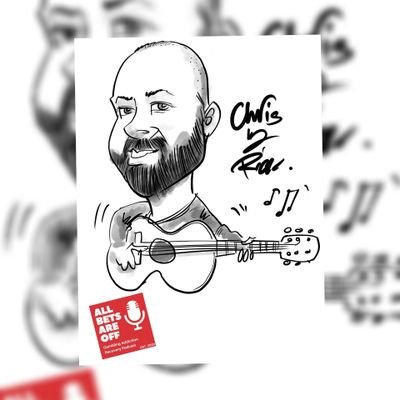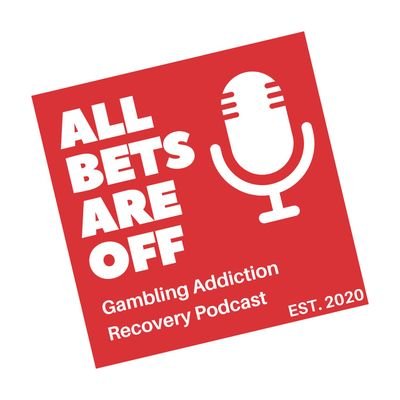“The plan was win, press withdraw and kill myself so that they get the money” Recovering gambler Chris Gilham shares his harrowing experience battling a gambling addiction
2 years, 10 months ago Chris Gilham placed what would be his final bet.
Despite struggling with an alcohol addiction for many years, it wasn’t until he was aged 30 that Gilham first gambled. Alcohol had long been used as a form of escapism, a tool to suppress his feelings of worry and stress. But inevitably binge drinking sessions no longer took those feelings away, leaving Gilham with a void that needed filling. “That’s when I found gambling and not on purpose,” he explains.
What started out as an innocent bit of fun, with sweepstakes on the Grand National and small wagers with his work colleagues on the football soon escalated to the point where Gilham was completely hooked.
He found himself betting across multiple sports, on multiple apps and at all hours of the day. “I would wake up early to place bets on the Australian Football and on the virtuals. I’d then move onto the online casino. It got to the point where I was sitting up through the night gambling without my family knowing,” Gilham confessed.
“I would just sit there on my phone and not take any notice of what my kids were doing or saying.
“I wanted to, I really wanted because I love my kids to bits, but I couldn’t draw myself away from what I was doing or thinking about because the gambling was just so consuming. It was constant, 24 hours a day and I’d be getting into bed thinking about it.
“When I closed my eyes, I would see a roulette wheel go round and round and it did not stop.”

In total Gilham estimates he lost around £100,000 over a six-year period due to his gambling habits, but like many, it was the mental health aspect of an addiction which really took its toll on him. Alongside his struggles with alcohol, Gilham suffered crippling depression and anxiety, which impacted all areas of his life, including relationships and his work.
Research conducted by the Gambling Commission has shown that these feelings are all too common for those suffering from a gambling addiction. Their findings saw 47% of problem gamblers say they were moderately or severely depressed or anxious in comparison to 20% who were non-gamblers.
Speaking with complete clarity, he recalls the lowest point in his life during a gambling episode where he spent close to £50,000 over an eight-day period. It was during this time that Gilham requested and received a £25,000 loan from HSBC which he intended to use in full to gamble and win enough money to support his family before ultimately ending his life.
“It was very, very calculated at that point. I looked at my pension, and thought: ‘if I kill myself, will they pay this out to my wife?” he explained. “I kept thinking: ‘I don’t think they will.’ So, from then on it was three or four days of gambling to try and win money. The plan was win, press withdraw and kill myself.”
Having lost the trust in himself to stop, Gilham saw death as the only option fearing he would only reverse withdraw the money if he did not go through with it. “I couldn’t trust myself to get that money back. I thought the family was better off without me, that way I couldn’t reverse withdraw it. Thank god I lost the money really.”

After suffering that final episode and reaching rock bottom, Gilham confessed to his wife the next day what had happened before breaking down and going to his parent’s house to seek help. In full support of him, it was here that they took control of his finances, helped to pay off his debts and then decided that he would attend Gamblers Anonymous (GA) and Alcoholics Anonymous (AA) meetings. “It’s one the best thing that’s happened,” he said.
“I went in there and said: ‘Hi I’m Chris, I’m a compulsive gambler’, and suddenly, I met all these people I could talk to who understood me and I suddenly thought: ‘I’ve got a choice. I can stop this; I can stop this if I do the right thing.’
“The beauty is now that once I found GA and AA I could start talking about my emotions. I never felt the need to gamble or drink again, because I had that outlet in a proper way, through talking and through letting people know how I felt.”
Gilham himself has found his own ways to aid his recovery. In April 2020, he launched the ‘All Bets Are Off’ Podcast, a gambling addiction recovery podcast that he is a co-host of alongside other recovering gamblers. Here, he uses his platform to talk about his own experiences and stories whilst chatting to guests and specialists who want positive change for the industry.
“It helps me to recover, it means for the life of me, I never want to go backwards,” said Gilham. “It’s opened up so many opportunities for me, I’ve built a massive network of friends and colleagues within this gambling recovery community.
“We are all here to help each other when times get tough and having this huge network, globally, to be honest, is just incredible, but change needs to be made and I want to be part of that.”

As a father of two himself, Gilham has grown concerned about the current level of gambling advertising in football and actively campaigns for legislative change which would see gambling sponsorship banned.
Football’s restart following the postponement due to the coronavirus pandemic saw gambling firms broadcast 24 adverts during the first two matches, 14 of which coming before the 9pm watershed. Worryingly, many of these bombarded sports fans with enticing odds for the in-play market and with offers of free bets to draw you into their apps.
Football is at a saturation point with the level of advertising normalising the dangers behind the industry. A matchday experience is engulfed by betting firms with the companies frequently appearing around the stands, in the programmes and on player’s kits.
“The most worrying thing nowadays is that kids believe that gambling is part of football and that it is part of supporting your team,” Gilham explained.
“Since I’ve stopped gambling, I’ve started to enjoy sport again. I wasn’t enjoying it for a very long time and unfortunately part of it was because of the advertising around it. It’s normalised for people and they don’t realise it. My wife says how much the advertising annoys her because she knows first-hand the damage it does.
“It’s so ingrained in football and it doesn’t get the respect it deserves. We don’t know how many are out there suffering because people don’t come forward.
“Gambling is becoming the new tobacco, especially with the public health issue here. It causes so much destruction, it’s the largest suicide killer out of the addictions.”
You can listen to Chris’ podcast ‘All Bets Are Off’ on Spotify, Apple Podcasts and Google Podcasts.
In the UK and Ireland, help is available by contacting Samaritans on 116 123 or by emailing jo@samaritans.org or jo@samaritans.ie.